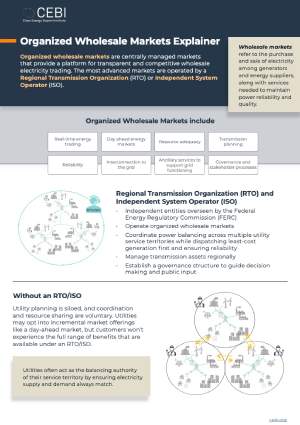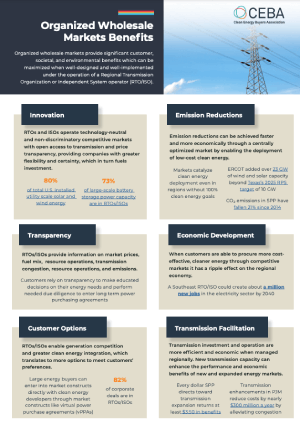Organized Wholesale Electricity Markets
Wholesale markets refer to the purchase and sale of electricity among generators and energy suppliers, along with services needed to maintain a safe and reliable power system. Organized wholesale markets are centrally managed markets that provide a platform for transparent and competitive wholesale electricity trading.

Customer Data Needs for Greenhouse Gas Reporting in the U.S. West
Learn about energy customer needs for centralized West-wide greenhouse gas reporting.

Energy Customer Priorities for Meeting Resource Adequacy Needs
Learn about energy customer needs and recommendations for grid resource adequacy.

Organized Wholesale Market Explainer
Learn the basics of organized wholesale markets.

Organized Wholesale Market Benefits
Here’s how organized wholesale markets contribute cost, customer, and community benefits.

Organized Wholesale Market Expansion in the West
Understand the benefits of western organized wholesale market expansion.

Organized Wholesale Market Principles
CEBA’s market design and implementation recommendations.
